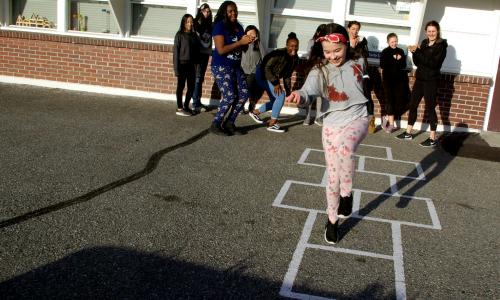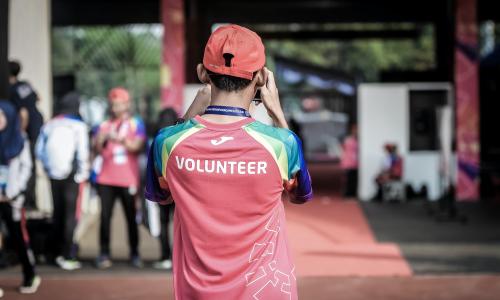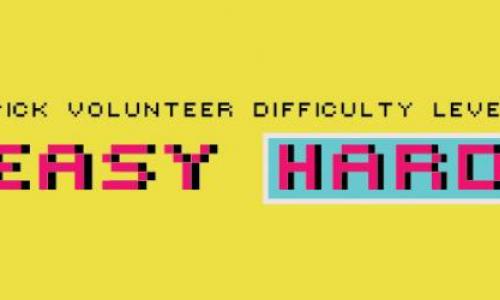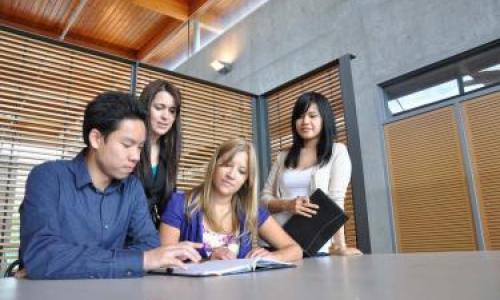Many students think that volunteering is just another way to kill time, but they often overlook the valuable experiences and skills they gain from it. Kyle Jung, a SIAT student, shares his thoughts on volunteering and the significant role volunteerism plays in his professional and academic skill development.
According to Jung, volunteering gives you the opportunity to expand your horizons, meet new people and learn valuable life and work-related skills, as well as discovering things you may never know about yourself before. Read on to find out how Kyle got involved on campus…
Q: What organization(s) you are involved with and why/how you got involved?
A: I first got involved with Student Ambassadors in my first year at SFU when I volunteered for the Open House. I then took a hiatus of volunteering but came back in my 4th year to become the Vice President of Activities for the Interactive Arts and Technology Student Union (IATSU). In my 5th year I became the Vice President of Operations for IATSU. I am active within the Surrey campus and help out a lot with the Surrey Campus Committee (SCC).
I first got involved with IATSU because I felt I needed to get into the campus community. I knew a lot of people by name, but didn’t know them as friends. I found this as a stepping-stone not only to improve myself professionally, but also socially.
Professionally, I took IATSU for as much as it would give me. My first year volunteering with IATSU, I was learning the ropes and I had to learn them quick. It was a rough year for IATSU and that forced me to step up. I didn’t feel like it was an obligation, I took it as an opportunity to give back to the community that I had ignored for the better portion of my school career. I had done a Co-op term in an office setting, but being in IATSU helped me understand a little of what goes on in the real world in a management role.
In my role as VP-Activities, I learned project and team management in putting on events sponsored by IATSU for the Surrey campus. I have actually discovered a passion for project/team management through this role. Being the VP-Operations, I have an opportunity to further explore this area I would not have discovered had I not gotten involved with IATSU.
Academically, I have also found that volunteering with IATSU has helped me understand the processes that most students complain about but have no basis or knowledge of the “behind the scenes” to complain. Being in a relatively new program compared to many of the established programs there have been numerous changes, and I have had the opportunity to see how and why these changes take place. Of course this is a benefit of being part of a student union rather than just a club. Knowing how the process works provides me the opportunity to work with the administration to affect change. It amazed me how much the university actually listens to student input.
Working with the SCC, and by extension the Simon Fraser Student Society (SFSS), I have volunteered my time to further facilitate community within the campus. Being a Surrey-based student, I haven’t ventured to Burnaby often, but the Board of Directors knows who I am and I help out in a minimal role, but I still enjoy volunteering my time to the Society.
I am also an Orientation Leader. I got involved because I went through Orientation myself, and thought I needed to give back. I also thought it was a natural extension of the work I already do in my volunteer capacities. It gives me the opportunity to share the benefits of getting involved to the new students.
Q: How/what you are contributing?
A: In Student Ambassadors, I am mostly contributing time and manpower.
In IATSU, I am contributing knowledge of the structure of the Student Society, and the internal structure of IATSU. Most of the current executives are new, and therefore must be taught the ropes. I also contribute to the Interactive Arts and Technology (IAT) student body by representing the students to the administration. Being a senior student, I can generalize the requirements of the younger undergrad students semi-accurately on my own, but I take input from the students in order to accurately voice the student body.
I contribute to SCC by lending an involved student’s view to the committee, but I also consider the students who don’t get involved when I voice issues because I can understand how other students may feel.
In Orientation, I can share my experience with the new students. I can inform them how to get involved, where to go for help, who to get to know, and other knowledge to help them survive their first year and the rest of their university career.
Q: What you are learning from your volunteer work (skills, knowledge, opinion, learning something about yourself?)
A: I have learned a lot about accountability and organization. In terms of accountability, being a non-profit organization and part of a larger non-profit organization, I have learned how to keep a proper paper trail. But on a larger scale, to understand the internal workings of an organization like IATSU, or the SFSS, gives me a step up in a world where companies all have defined structures and rules. I can use this experience to step up to real-world positions.
Also, I’ve discovered a new passion, which can directly help me find a career. I’ve found I enjoy project management. I find I can do it with a great degree of efficiency and it is a real-world skill that I have developed almost purely through volunteering.
Read Part 2 of Kyle’s interview!














